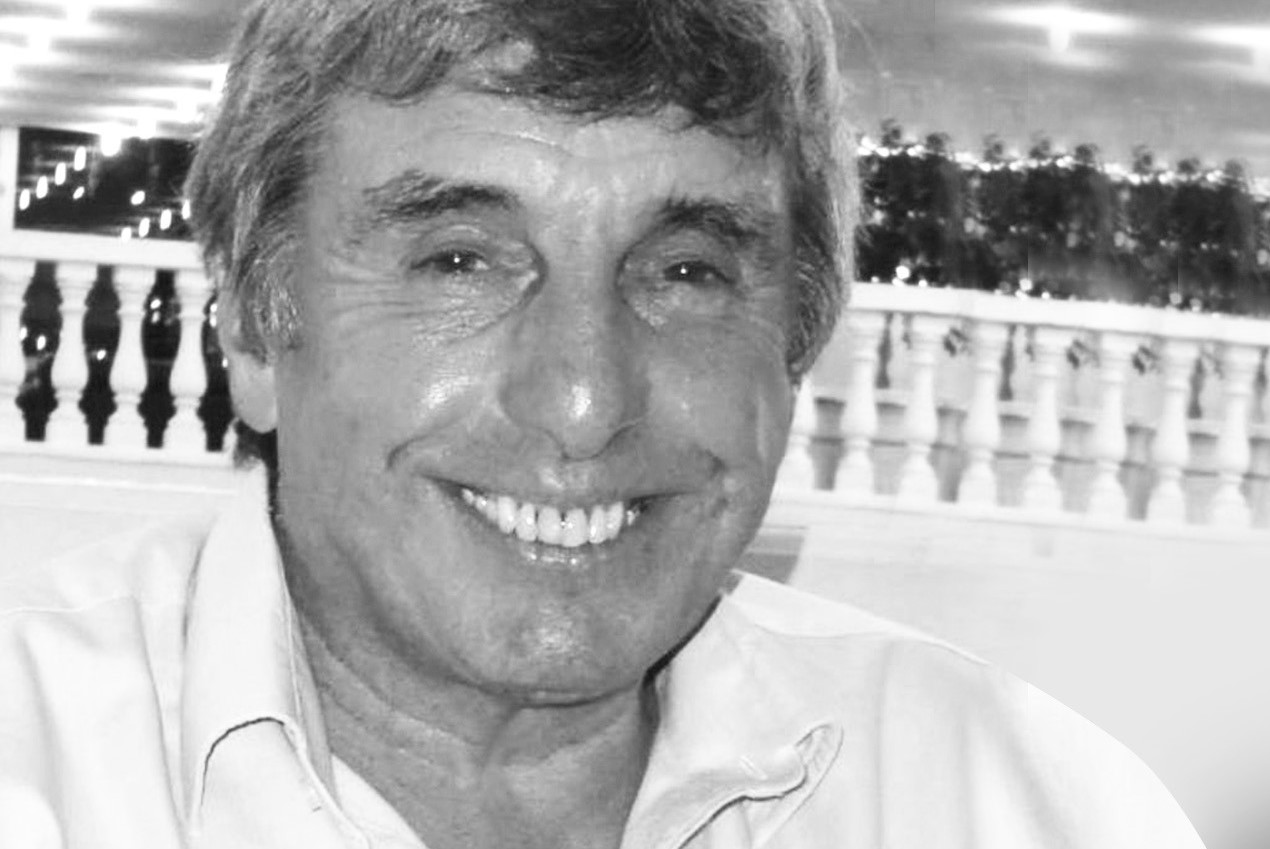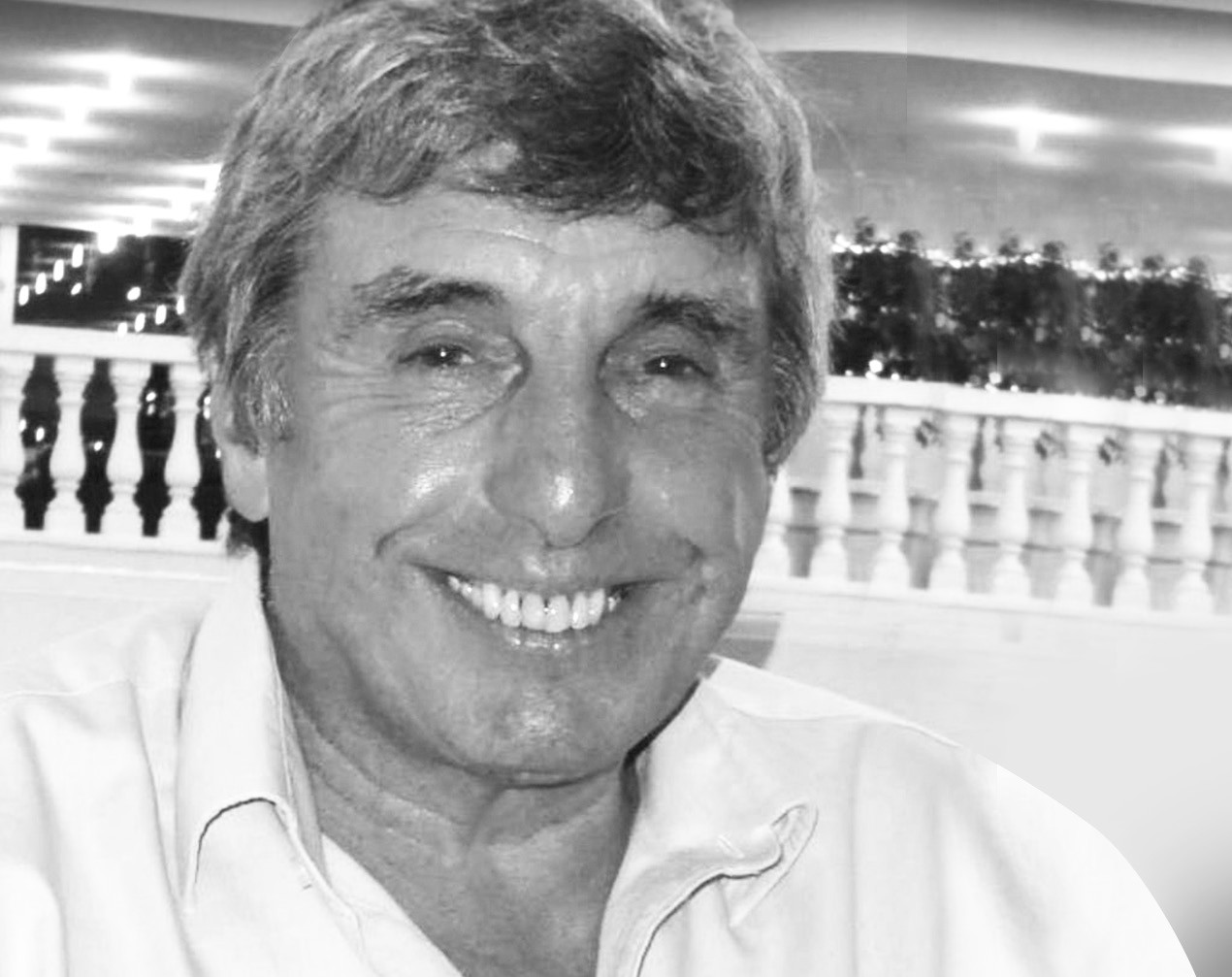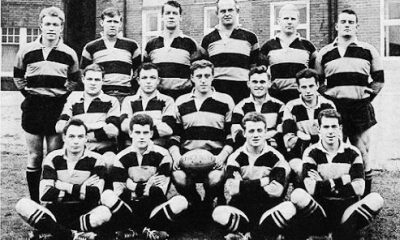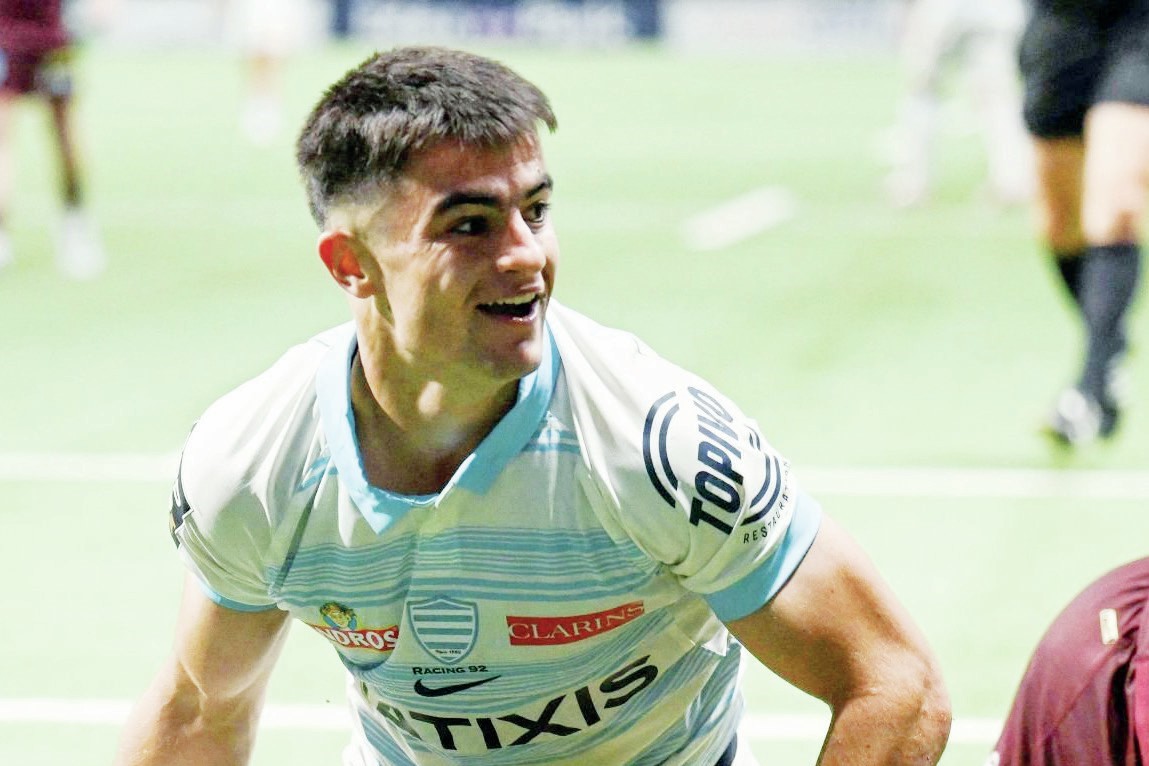
David Emery 1946-2023
Peter Jackson looks back on the life and times of a giant in the world of sport and newspapers
The Sixties hadn’t long started swinging when David Emery made the first prediction of a sporting life like no other. The teenaged athlete let it be known to anyone who cared to listen that he was already on a precarious flight path towards an Olympic medal. Gold, he confessed, would be pushing his luck a bit too far; silver or bronze, most definitely not.
Had they only known, the best long jumpers of the time headed by the reigning Olympic champion Ralph Boston and his Welsh successor, Lynn Davies, might have started looking to their laurels. Anyone doubting the sincerity of the schoolboy’s ambition would be treated to an impromptu demonstration of his ability.
And so it came to pass that, while escorting a somewhat sceptical girlfriend home from a night out, Emery took a detour via the local athletics club. In his rush to make the right impression, it escaped his notice that the long jump pit was under repair.
Britain’s budding Boston took off on a long approach, hit the board and hitch-kicked through the wintry darkness blissfully unaware of what awaited him in a sand-pit with no sand. Instead of landing softly, Emery skidded over the cold concrete on the bones of a backside hanging out of the ripped lower half of his glad rags.
Somebody may have been trying to tell him something, that a bigger, better plan had been mapped out for him, a scheme so grandiose that it guaranteed him a ringside seat at major events across the world, at someone else’s expense. Best of all, he would be paid to be there.
Long years later, when it seemed he’d done all there was to do, Emery created the UK’s only weekly newspaper devoted to a sport he had admired since striking up a friendship with the game’s prototype superstar, Barry John. The Rugby Paper scrummed down in 2008, an energetic stablemate to the Non-League Paper launched by Emery’s company, Greenways Publishing, some seven years earlier.
After more than 15 seasons and almost 800 issues, The Rugby Paper is still going strong, still reaching parts of the game, not least those at community level, largely neglected through the demise of local newspapers decimated in a post-digital world.
As for the long jump pit, that was best left to Boston, Lynn the Leap and the freak who would come along before the Sixties were out and jump so far that his landing had to be seen to be believed. Bob Beamon did for the long jump what the Wright brothers had done for aviation.

By an uncanny twist of fate, the most quantum of jumps in Mexico City happened within 48 hours of ‘The Golden Girl’ designated to become Mrs David Emery receiving the Olympic silver her husbandto-be talked of winning only a few years earlier.
Lillian Board had been robbed of gold in the last inches of the women’s 400 metres, beaten into second place one-tenth of a second behind Colette Besson from France. The cognoscenti returned a unanimous verdict: at 19 Lillian’s time would come at the Munich Olympiad of 1972.
After the bravest of fights, she died in December, 1970, her life cut shockingly short at 22 by a cruelly aggressive form of cancer. Her fiancé responded to the tragedy with a book, Lillian, acclaimed to this day as a masterpiece of sports writing.
“One quality he always brought to the office was a sense of fun”
Every penny it made went to cancer charities. Lillian’s father, George, ‘marvelled’ at David’s work, telling one of the writer’s confidantes: “He’s some man, that Emery.”
He still became Mr and Mrs Board’s son-in-law, marrying Lillian’s twin sister, Irene while learning every aspect of a journalist’s stock-in-trade, starting in time-honoured tradition on a weekly paper, the Surrey Comet in his native Kingston upon Thames.
Shifts in Fleet Street, notably at the Daily Mail, introduced him to the discipline of sub-editing and the art of page design, ensuring that when the magic carpet arrived he would take off equipped with all the tools of a master craftsman.
As chief sportswriter for two national dailies, he covered all the big events: Olympics, Wimbledon, FIFA World Cups, world title fights, the golfing majors, Lions’ tours and the classics of the turf from Aintree to Cheltenham. When the Daily Express made Emery sports editor in 1986, they backed his judgement on major signings, then gave him the wherewithal to close the deals. He brought Jim (James) Lawton back from the Vancouver Sun as his heavy-hitting columnist and Malcolm Folley from The Mail on Sunday as chief sportswriter.
He made Peter Tozer, a trusty lieutenant from the early days, his deputy and launched Charlie Sale on a stratospheric curve by making him news editor. “David could do every journalistic job in the book – writing, subbing, layout, ideas, motivation, the lot,” says Sale.
“No matter how heavy the work load, he always found time for everyone. Always made a point of speaking to the reporters, always encouraging them, always big on team spirit, always first to the bar.
“And the other great quality he brought to the office every day was a sense of fun. I had 17 years at the Express, then 17 years at the Mail. It was 40 times more fun on the Express and we worked all hours as well.”
For a man with a long fuse in an often fiery business, Emery took some goading but only so much, as Sale remembers. “Sir Nick Lloyd, the editor, loved David and one day he’s showing some university graduates round the office, telling them: ‘This is the sports department, run by the great David Emery’.
“He could hear David but he couldn’t see him. That’s because he and I were wrestling round on the floor over some disagreement. Nick still thought the world of him.”
In an era when Fleet Street clung to the tradition of long lunches, Emery enjoyed his share but without ever losing his passion for athletics and his penchant for racing of the four-legged kind. Courses would be mapped out in central London and bets struck.
“Sometimes we’d spent our lunch breaks running three-and-a-half miles along the Thames,” says Tozer, a serious runner nicknamed The Ironman. “We called ourselves Rupert’s Runners, raised lots of money for different charities and on one memorable occasion the great Australian long-distance runner Ron Clarke presented the trophies. David arranged that.”
As the ultimate people person, he mastered the tricky balancing act between writing honestly about the greats and retaining their friendship, most notably George Best’s. Emery had a long-standing rapport with many more, including Jeff Probyn, the sheet anchor in two Grand Slams whose England pack could drink anyone under the table, even a thirsty George.
“David cared about rugby,” says Probyn. “He took care to reflect the game as nicely as possible. Rugby owes him a lot. He gave me a column and I shall forever be grateful to him for that. I am shocked and saddened by his death. He was a great guy, one of the best.”
The game recognised his ‘great contribution to rugby union journalism’ at the UK Rugby Writers’ Club annual lunch at The Oval late last month. As his younger son Sam collected the award to an ovation from the great and the good, nobody knew that his father had only ten days to live following a stroke on the eve of England-Wales 15 months ago. Malcolm Folley, one of the finest sportswriters of his generation and a serial award winner to boot, describes Emery as “one of the most significant journalists of his generation through his empathy, knowledge and human decency. No one who encountered him on his remarkable journey through life ever had a dull moment in his company.”
Emery coaxed Bob McKenzie out of his native Scotland by persuading him that he was just the man to go trotting around the globe covering Formula One and rugby union’s volcanic plunge into professionalism with all its attendant eruptions.
“He convinced me that journalism might not make me a millionaire but that sometimes you could live like one,” says Bob. “Emers had style. You never wanted to let him down.”
He had a nose for news few could match, something I discovered to my lasting cost some 40 years ago. After another one-sided Wales-England at the Arms Park, he scooped us all with the story of Fran Cotton retiring because of a heart condition.
The pain at seeing the story splashed all over the back page of a rival national daily could not have been worse had I, too, landed bottom-first in a long jump pit with no sand.
Quite some man, that Emery… David Emery, born October 13, 1946, died June 4, 2023. Survived by his first wife, Irene, daughters Alexandra and Georgia, sons Matt and Sam; and by his second wife, Sarah, and son, Jack.


British and Irish Lions
Charlie Elliott: The 17 backs I would select for the British and Irish Lions























You must be logged in to post a comment Login